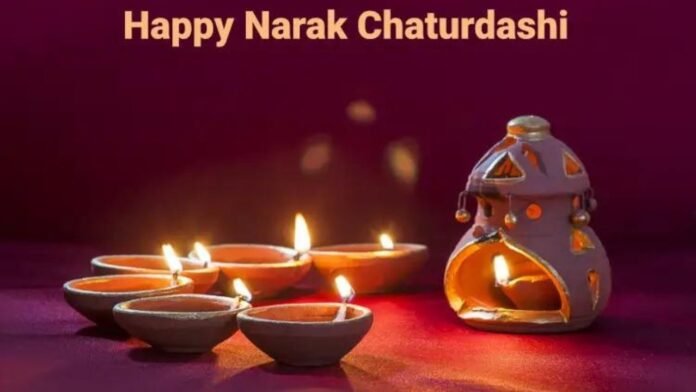
Vaidehi Bhargava
Roop Chaudas, also known as Narak Chaturdashi, falls on the 14th day of Krishna Paksha (waning moon) during the Hindu month of Kartik, a day before Diwali. This festival is celebrated with the belief of enhancing one’s beauty, both inner and outer, and to ward off evil or negative energies. It holds a rich spiritual and cultural significance in India, symbolizing the triumph of good over evil and light over darkness.
The main legend behind Roop Chaudas is associated with Narakasura, a demon king who brought terror and oppression to his people. According to the story, Narakasura received a boon that only his mother could defeat him. This led him to believe he was invincible. But his tyrannical rule and misdeeds angered the gods, and finally, Lord Krishna, along with his wife Satyabhama (who was a reincarnation of Narakasura’s mother), defeated him. His death freed the people from darkness and oppression. In honor of this victory and the liberation it symbolized, Narak Chaturdashi is celebrated. It’s believed that lighting diyas on this day illuminates one’s path away from evil and towards righteousness.
The rituals of Roop Chaudas focus on purification and self-care. People traditionally wake up before dawn for an Abhyanga Snan (holy bath) with ubtan, a paste made of fragrant herbs, gram flour, and oils, believed to cleanse and beautify the skin. Special emphasis is placed on physical and mental wellness. Women, especially, engage in beauty rituals to enhance their Roop (beauty), signifying the belief that both inner and outer beauty are essential. Many believe that one’s inner beauty shines through when the heart and soul are free from evil thoughts.
People also light lamps and offer prayers, asking for protection against negative energies and seeking blessings for beauty, health, and prosperity. The evening is often marked with rangolis, lighting of oil lamps, and sometimes even small fireworks, setting the stage for Diwali, which falls the next day. In essence, Roop Chaudas serves as a reminder to cleanse oneself of negativity, both inside and out, in preparation for the light-filled celebration of Diwali.

